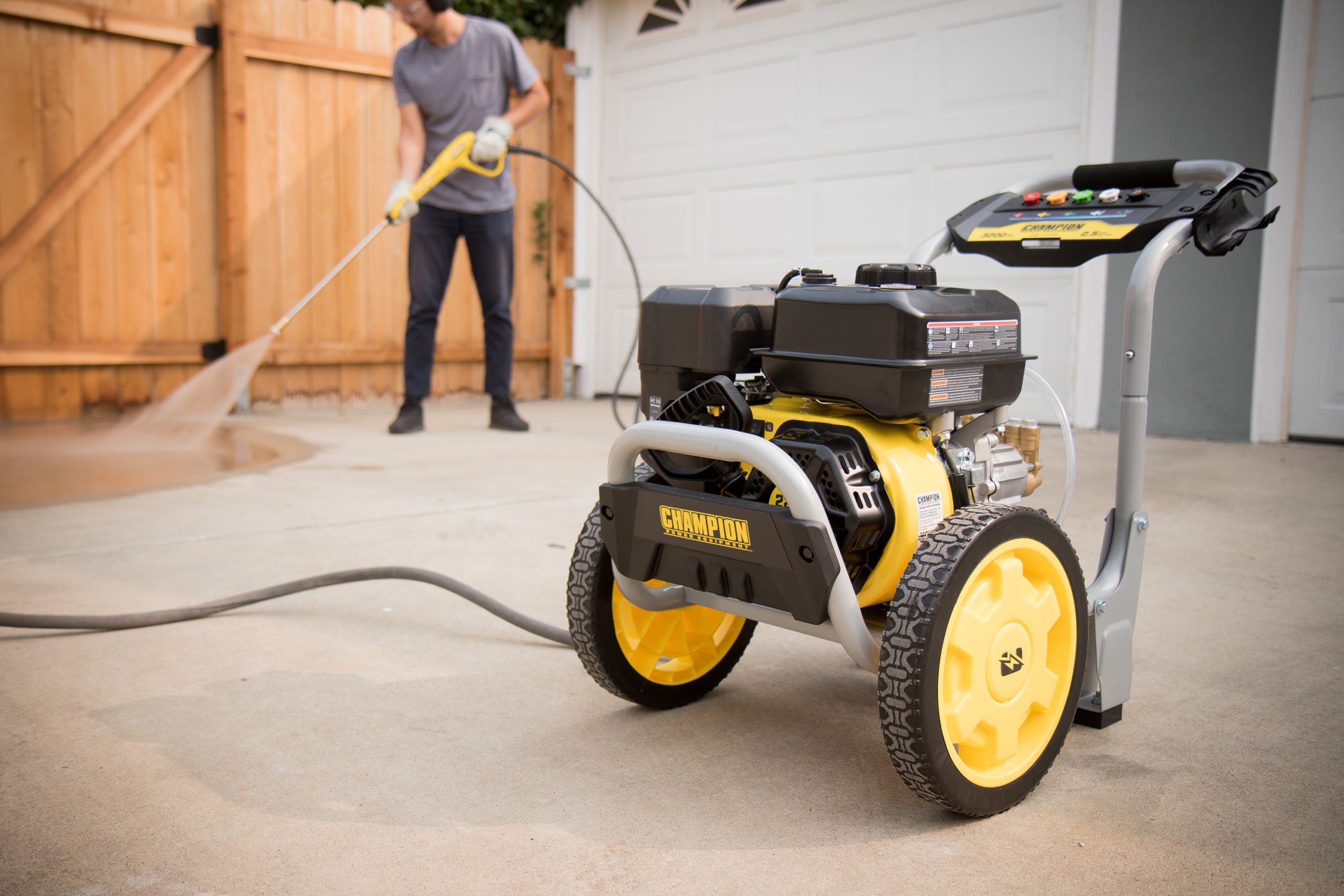Pressure Washing 101 for Spring Cleanup Success
 Grime, pollen, mold, mildew, and dirt have been busy accumulating over the winter. Why hire someone to clean things up for you when you can do it yourself?
Grime, pollen, mold, mildew, and dirt have been busy accumulating over the winter. Why hire someone to clean things up for you when you can do it yourself?
Using your own pressure washer is cost-effective, efficient, and satisfying! Here’s what you need to know so you can be confident your spring cleanup projects will be a success.
Hot or Cold
You can buy a hot water pressure washer or a cold water pressure washer.
The hot water variety is especially good for cleaning up any kind of grease or oil, plus hot water kills germs, mold, and bacteria. The hot water allows you to use less detergent and you’ll also have a shorter drying time. Hot water pressure washers are typically much more expensive than cold water pressure washers. If a pressure washer is not explicitly labeled as “hot” it’s generally safe to assume it’s a cold water unit. The vast majority of pressure washers available at retail are cold water.
Cold water pressure washers are less costly than the hot variety and are the machine of choice for most homeowners. They are a popular solution for cleaning up your home’s exterior, driveway, sidewalk, patio, or deck.
Do I really need a pressure washer?
When springtime arrives, most people notice how dingy or dirty their home looks. Winter weather tends to leave dirt and debris behind, but warmer weather’s arrival means it’s time to clean things up.
Whether your home’s exterior is brick, stucco, or vinyl, a pressure washer and a little time on the weekend is all it takes to brighten up your home and give it a fresh appearance for spring. Your sidewalk, driveway, patio, or deck may also need a spring cleaning. Unless you enjoy using a scrub brush and a bucket, you’ll love how a pressure washer will make your outdoor cleaning a lot easier. You might also want to clean up your patio furniture, your vehicle, or your boat.
Pressure washing saves your back. When you are washing your deck, you don’t have to be on your hands and knees scrubbing away stubborn stains. Stand upright and let the water do the work for you.
Pressure washing saves time. You can have all the outdoor areas of your home fresh and clean in the amount of time it would take you to do one area by hand. You also don’t have to drag out lots of extra stuff like buckets, cleaning solutions to mix, sponges, and ladders. Speaking of ladders, using a pressure washer means no more dangerous climbing. Just point your pressure washer up and spray away that hard-to-reach mildew on your house.
Pressure washing saves money. Did you know that using a pressure washer instead of a garden hose saves water? The high pressure creates more cleaning power with less water so you’ll use less water and save on your water bill.
Pressure washing keeps your family safe. You’ll blast away contaminants and harmful mold so your family can breathe easier. When you clean slippery algae off horizontal surfaces, you’re preventing dangerous slips or falls.
Pressure washing boosts curb appeal and helps maintain the value of your home. Improving the condition of your driveway and sidewalks and spraying away unattractive mildew will make your home more attractive so it stands out whether you’re selling your home or not.
Which detergents should I use?
First, you don’t have to use detergents with your pressure washer, but sometimes it might be necessary.
Before you clean, read up on the safest way to clean each surface.
If you want to use your pressure washer for lots of different projects, you should consider a multi-purpose detergent so you can use it on your house, deck, vehicle, or driveway. Also, using one detergent for most of your projects is more cost-effective than buying different specialty detergents for each item you want to clean.
On the other hand, you might get better results from a detergent created specifically for the job you have in mind. You might choose a detergent specifically formulated for removing stains on stucco, or for destroying mold and mildew on brick. If you’re washing a boat or a car, you should read your owner’s manual in case you should use a recommended type of detergent. If you’re about to clean all the concrete, you might want to grab a detergent created to get the job done right.
If eco-friendly products are important to you, you’re already familiar with reading labels. Choosing the right detergent also means you need to read the label and make sure the detergent you choose is biodegradable and the ingredients are environmentally friendly. You’ll also want to check the toxicity levels of the product to make sure it won’t cause harm to people, animals, or plants.
Outdoor Cleaning Simplified
Simplify all your outdoor cleaning projects with pressure washing and be confident your spring cleanup projects will be a success.